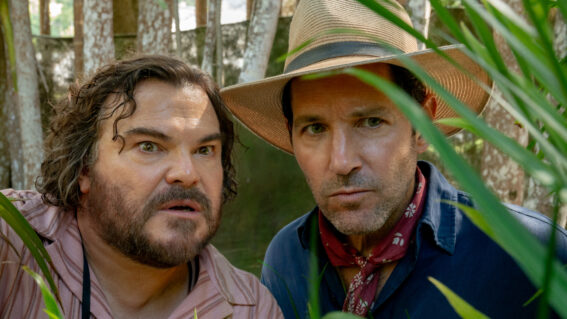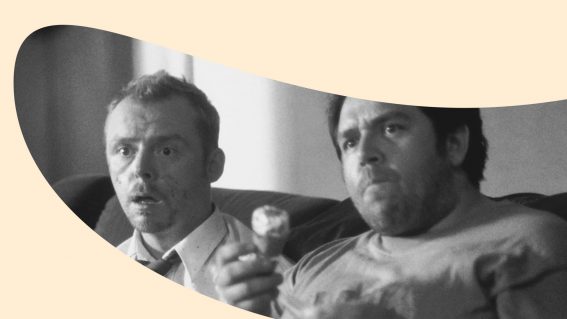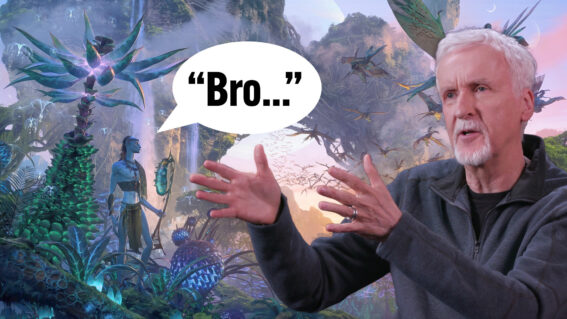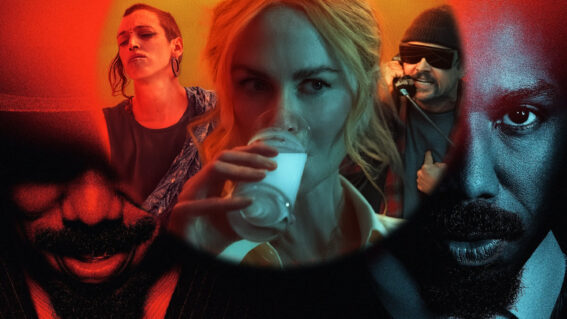Director Annie Goldson on ‘Kim Dotcom: Caught in the Web’
Playing at the NZ International Film Festival, Annie Goldson’s new documentary Kim Dotcom: Caught in the Web focuses on the larger-than-life character of the title – a one-time near-unknown new NZ resident, then the source of countless headlines (and legal paycheques). Flicks sat down with Goldson for a conversation about her film and how she balanced […]
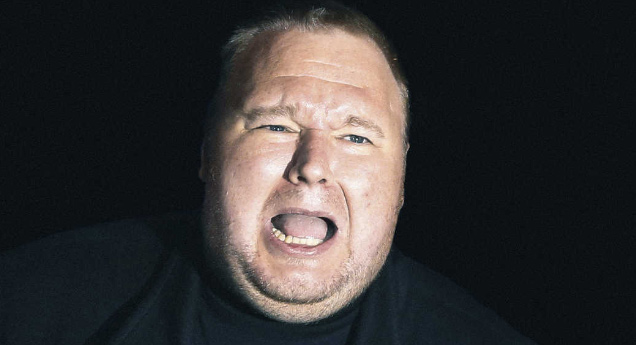
Playing at the NZ International Film Festival, Annie Goldson’s new documentary Kim Dotcom: Caught in the Web focuses on the larger-than-life character of the title – a one-time near-unknown new NZ resident, then the source of countless headlines (and legal paycheques). Flicks sat down with Goldson for a conversation about her film and how she balanced Dotcom’s household name status with his complex history and legal entanglements.
FLICKS: How have you found working on a documentary where the subject’s so well-known from the outset?
ANNIE GOLDSON: Well, Kim isn’t known. I think New Zealand is a particular circumstance here, and the years between 2012 and 2014 he was extremely visible, although he kind of went to ground after Internet MANA. Having said that, lots of people know what Megaupload was, of a certain generation – now it’s older technology, of course. They didn’t necessarily know about Kim, who tended to be somewhat reclusive like a lot of people that run Internet companies. You’re never quite sure who’s behind them unless they make themselves visible.
I think to myself, “well, I used Megaupload”, and didn’t make the connection between that and Kim Dotcom for a while. And I suppose that he’d been here for a while before I even really realised who he was.
Well, I think most of us became aware of him after the raid because he was quite a reclusive millionaire. And, of course, I start the film with the good folk of Coatesville, who were the ones that knew about him. But I feel that really some people would have become more aware of him after the [New Years Eve] fireworks display, but for a lot of us I think it was the raid, and for me, it was the raid that really drew my attention to him, and to the case, and to the spectacle.
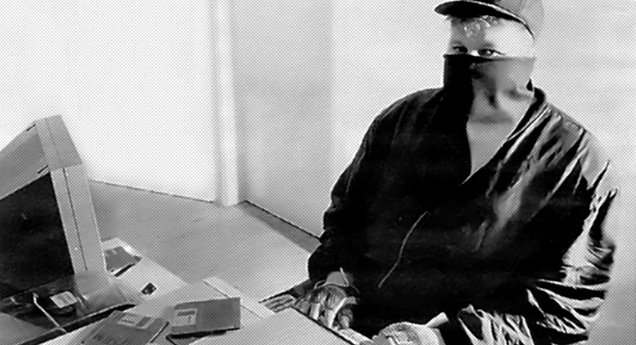
At which point in the chronology of Kim Dotcom did you started working on the film, or start considering that there was a film to be made?
As soon as the raid happened, I thought this is odd. This seems such a manufactured spectacle in a New Zealand context. Quite often in my films, there is some news instance that strikes me as having deeper issues underneath. I mean, most news items actually do, but some sort of stand out as being things that are worth considering more deeply, and this was one of them. So I was curious and interested from the start, but it wasn’t until I started working with Alex Behse, a German producer who produced the film, that we really got serious about making the film. And that wasn’t until early 2014, I think. So there were a couple of years of occurrences, let’s say, endless court cases and revelations about how our bureaucracies functioned – or not – before we actually started the film. But then, because it was an independent film, it took another couple of years to convince Kim to do an interview and to access his archive.
I can imagine. He’s clearly not someone that’s shy of a camera in the abstract but I also imagine he’s not someone that’s willing to cede control to someone else, especially with something as major as a film project. So what was that process of earning his trust like?
Well, I think with all subjects, they have to decide there’s something in it for them, and certainly, some Internet entrepreneurs, if I can generalise, choose never to participate. And there’s a number of films – a recent one is the McAfee, the anti-virus software guy – there’s a film about him and he never participated. So we had to accept that this might be the case with Kim Dotcom. But I think what Kim was interested in by my approach was that I didn’t seem to be sensationalist and that I also was interested in the issues that lay behind the case, which, in some ways, I would still argue, exceed Dotcom himself in terms of their significance to all of us within this Internet age. So I think that he, too, is certainly preoccupied with a number of those issues. So he, I think, was considering participating for a while. But there must have been something that suddenly made him decide it was better for him to be involved than not because, clearly, we had to make the film once we got funding.
So he had the option of being part of it or not being part of it.
Yes. And I had faith. Without compromising my independence, I had faith that he would come on board in the end. So I appreciate the fact that he did.
That put you in a very good position because there’s enough meat in that story that you could have made a film without him. I mean, obviously, the preference would be to have him involved. But did you feel you could go either way at that point?
Well, I didn’t want to, but I knew I might have to. And it would probably have meant writing me in more and making it more of a kind of my journey to try and explore who this person is and what the issues are. But I’m not a filmmaker who likes that tack, particularly, just because I’m a bit sort of shy on that side of the camera.
It’s a very strong negotiating position to come to the table with Kim Dotcom though, knowing that you can do this anyway. And not being reliant on him to say yes.
Obviously, he’s a very smart guy. He also knew if he had too much control over it or was perceived to have control over it, it would invalidate it, certainly within a lot of circles.

As his archive of content opened up to you, how much did you have to work with there? Because he also seems like someone that loves filming himself.
That’s right.
So I presume there’s a lot of home video, quite well shot as well.
Oh. Some of it’s amazing – rigged cameras dangling from helicopters over super yachts. And then some of it’s quite rough and intimate. So it was quite a joy as a filmmaker to have such a range of different materials. Because some of them were kind of feature film framing and shots and resolution. But some of my favourite parts are much more intimate. So we, again, negotiated access to the archive with Kim. He has been someone who has documented himself or paid to have himself documented, or not paid to have himself documented, for many years. In even his early career, you saw he was quite keen on television coverage and so forth as a young hacker.
So, as you say, he’s certainly not shy of the camera. Generally, he’s the person who’s probably been in control of what’s filmed and so forth. So we were able to negotiate access to the archive. There were certain terms and, certainly, one thing I was very aware of is this is a very fraught legal case. There’s lots of issues around sub judice, say. I spent many, many hours studying the law, both extradition law and also international copyright law, which is fantastically complicated when it comes down to it. But I was really aware of making sure I didn’t legally jeopardise anyone or overstep any lines. So that was quite complex as well.

Even though it is such a complex legal position that he’s in, do you have the sense that people have made a decision quite quickly about Dotcom as an individual and/or his guilt, and generally stick to that initial assessment?
I think probably. I mean, something that’s quite interesting is that although the film’s got very good reviews, it seems that people’s opinion of Kim Dotcom himself doesn’t change greatly, you know? They either like him or don’t like him when they go into the film. They still like him or don’t like him when they come out. They say they learn a lot. Some reviewers have said they felt more empathy for him because you do see more of his personal side. But it seems that most people don’t seem to actually change their opinion of him in terms of, I suppose, the ethics of file sharing, and so forth. Or just, I suppose, the nature of his character. I mean, that seems to be the general consensus, anyway.
I think that’s been borne out for the last six or seven years. From police conduct and the court cases, to how vehemently the MPAA talk about him. That’s not just a performance, I think, from some of these guys. They genuinely do think he’s scumbag number one. But there’s a lot happening in the grey area with his activities, even though then the perception’s very black and white.
That’s right. I mean, it’s something of an old world/new world thing too, I think, in terms of business models and entrepreneurship. But you could say that entrepreneurs have always worked in the grey zone. I mean, was Ted Turner any different? He, in a sense, was using other people’s copyrighted material, and now there are banks and museums named after him. So I think it’s kind of an interesting debate. I’m someone who doesn’t approve of file sharing and piracy, but I also believe that unless the material is accessible and affordable, piracy’s going to happen, because we’re all part of an international community, and why should some communities who are advertised to, through a globalised communication system, why should they not be able to access materials? And to me, the Internet is just such a confusing space now. I mean, it’s changed so radically, and now with the whole fake news and trolling, and everything, it’s become a very different beast, I think, than its originators believed.
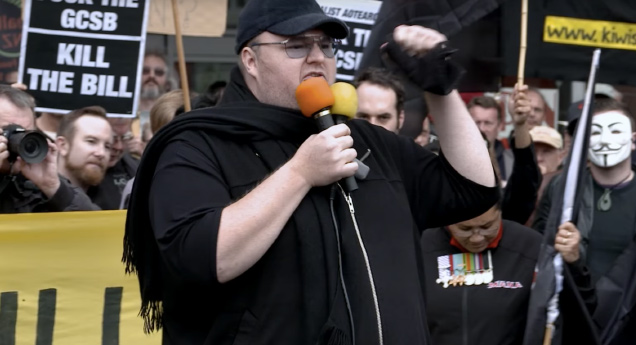
You don’t really pull advocates for certain positions about file sharing and its ethics into the film too much. Is that because people already have made their minds up about the topic, and were there areas where you just went, “I don’t need to really examine that so closely”?
I mean, I did try and give something of a history, because I think people forget how hard it was to get material. And they still don’t think about what it must be like to be an Indian student who makes $20 a month, or the majority of the world still can’t afford the kind of legal prices, even if they are accessible. So I think there’s lots of issues around not just access to entertainment, but to education, to knowledge. Because there’s also ring fences around those kinds of discourses as well.
Sure. Like textbooks, software…
Absolutely. I mean, if I write something for an academic journal, even though I’ve written it, I don’t get money for it because it’s good for my career and that’s the trade-off. But even I’m not allowed to share that. So there’s a lot of complex issues. And in a sense, we all break the law all the time. And sometimes I found the most vehement anti-piracy folk admit that they got a thumb drive from a friend standing by the water cooler [laughs], and there’s always that sense of people wanting to see material. And I think that there was a lot of delay. And I think a lot of the traditional media industries were quite slow in accommodating what could have been, actually, a serious fundraising option for them or an income-generating option for them. Because, initially, I think, the VCR, of course, there was a huge lawsuit against the VCR, which is the precursor the DVD, that ended up actually being a fantastic source of income for the industries.
They’ve fallen into the trap of perceiving the loss of income as every download equating to a missed sale.
I know there is this equation of one download is one lost sale, when very possibly no one would have bought it in the first place. There is the argument, of course, that the more buzz there is, the more legal copies will be sold. I mean, it’s a very complex terrain. I believe you can compete with free. I think that that’s what the Internet does really, really well. I mean, Twitter is free. Facebook is free. Obviously, they get data, there’s some kind of contract. And we may have kind of concerns about that, which I have too.
But it seems what the Internet does is compete with free. Bottled water competes with free. Takeaway lattes compete with free coffee in the workplace. So I do feel that the industry was slow to adapt itself. It’s happening more. It’s happening more. But still in New Zealand, we can’t access a lot of programming that a lot of people want to see, I think. But that’s not to say I condone downloading, particularly. I mean, I think it can hurt independent filmmakers. But then independent filmmakers have never done particularly well out of the traditional industry either. So it’s a very complex terrain, and I’ve just had to learn a lot about it because it’s something that I had feelings about, but I hadn’t really explored those feelings.
That’s not really the ideal foundation for this film, is it, to have a gut feeling about the subject matter?
No, no, but exploring one’s gut feeling is always quite interesting! I find every younger person I talk to has their own kind of ethical set of practices. Some of them do download but they always make sure they go to a concert. So they feel they would spend more going to see their favourite band in a concert or they’ll buy merchandise. Every younger person I speak to has their own set of rationales and practices, which is another huge complication.

Speaking of complicated, the actual process of the legal appeals and extradition hearings is a minefield. And it was fascinating to follow it as it unfolded here in New Zealand. That must have been a real challenge to condense into a film.
Oh, it was huge. It was huge. And I mean, in some ways, it’s the sort of law that doesn’t make for thrilling film either. I mean, it’s not like Making a Murderer where you’re going to find a key behind a bookcase. I mean, a lot of it’s technical things like file sizes and rewards programmes. So it is quite difficult. And then, really, a lot of the film is actually about how our institutions fail to follow proper process. So there’s the whole thread of mistakes our institutions, be they GCSB or police, made. Then there’s the whole threat of the actual extradition that doesn’t occur for like four years or something. So there’s the whole thing of extradition law. And then, the fundamental legal issue around the copyright case itself.
I think this is all kind of ground-breaking stuff that New Zealand’s been on the frontline on with some of these legal debates. And the outcome of the case could have quite a deep significance for the future of the Internet economy, if you like. So it’s been interesting and difficult for New Zealand, I think.
But it seems like every finding seems to open up a new set of legal possibilities. And if Kim is anything, he’s litigious and determined, so it will be interesting to see how this continues to unfold. I mean, I always made the decision to finish up with the first extradition hearing. And that was delayed quite a lot. But it seemed to me that this is going to be an ongoing story because if Kim and his colleagues end up going to Washington to stand trial, that will be a whole new legacy, a whole new wave of lawsuits, I imagine.
So we did finish it after the first extradition hearing, which found against Dotcom and the coders. But then there was the appeal that also upheld the extradition, but on slightly different terms, which does open up more legal questions. So there’s two more steps here, of course. There’s the Appeal Court and the Supreme Court, possibly, if the Supreme Court decides to take it. But I imagine that they will. But then, there’s other possible lawsuits. Some of the things our police did, or the FBI and our police did, are still perceived to be illegal.
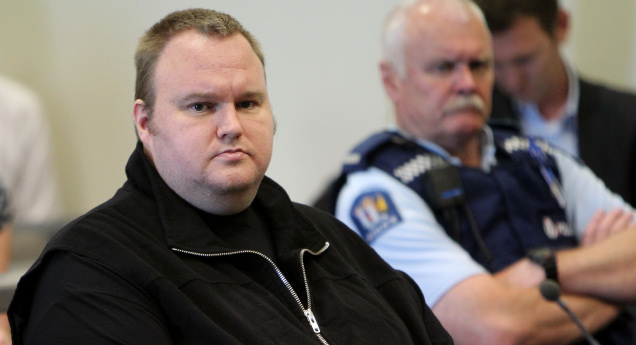
It’s interesting because you think of someone in Dotcom’s position, particularly with his resources, that the legal team is coming up with the cleverest, most obscure arguments. But so much of what they did was identifying mistakes, mistakes of law and mistakes of authorities actually not following their own procedures.
They’re not used to scrutiny. I mean, I think that was kind of an interesting thing about the film. Because whatever you think of Dotcom, I mean, if we are to adhere to an understanding of law and its significance to democratic process in open society, then he has to have his day in court.
You’ve got a dissembling Prime Minister at the highest level, you’ve got people that aren’t doing their jobs properly at the bottom level, and some kind of weird grey area in between. You just want your institutions to function, and it feels like to me that our institutions have failed us, and it doesn’t do wonders for one’s confidence.
No, that’s right because Kim, for better or worse, had the resources to continue that process of investigation. Many people would not have that.
Did your attitude about his position or the way that pressure had been applied by the state, did that change for you over the course of studying it more intently, or did you, like most of us, stick to your that initial gut feeling?
Well, the interesting thing about Dotcom is that he assembled around him at different times quite unusual bedfellows, let’s say. I mean, you did get the kind of wild, anarchistic youth who are attracted to his back story and clearly accessing movies and so forth. You get the kind of aspirational Dotcom-ery crowd who thought about the Internet economy and so forth. And then you got the kind of left who were opposed to the heavy hand of the state, probably opposed to so much apparent US involvement in our processes, and certainly opposed to spying. So these are very sort of different kinds of followers, if you like. And I found that very interesting.
Where I sat exactly probably hasn’t changed a great deal, but one thing that I have admired about Kim is he sort of retained a sense of humour. I mean, lots of people, for example, a lot of the crooks from 2008 bought expensive PR agents, hid their money in Switzerland. But Kim has had this kind of chutzpah that’s continued and I don’t know where he gets that from. But he’s managed to maintain a sense humour, which I think confronting the difficulties he has faced, and may face in the future, is an interesting fact about him. It makes him interesting. He and I are very different people. I mean, I’m a sort of lefty feminist type that doesn’t particularly like cars or [laughs] the party life. But I do find him a very interesting character. He’s changeable, but he sort of has a confidence. Whatever direction he goes in, he’s right.
In the process of making the film, how much of his music could you handle listening to?
We did use a little bit of his music, but then actually the rights to it were sort of complicated so I feel we didn’t end up using it that much. It’s not my kind of music. No. And I know his music career seemed to fall pretty flat, so. We did, however, use some of his video tapes. Some of his YouTube bits and pieces to quite good effect, I think. And he worked with some talented musicians.
A lot of people have come in and out of the orbit of Dotcom. What was your time that you spent with him like?
I often found Kim very thoughtful, quite quiet. He doesn’t drink any alcohol. So certainly, my interactions with him were probably tailored towards me as a person and I think he’s quite good at doing that.
Just finding the right angle. He’s a strategist, isn’t he?
That’s right. So we would talk a lot about politics, about law, about economics, about society. So obviously we weren’t talking about cars and girls and parties, or even his music. So I think he’s someone who has a wide-ranging knowledge and probably the way he exercises power, and I think he does have power over people, is by tailoring himself. But he’s always had followers, let’s say. And I suppose in my situation what I wanted from Kim was his involvement so I could make the best film that I could. I never was waiting for the gold at the end of the rainbow or fame and fortune, or parties, etc. So our relationship was really through the kind of lens of the film.
Are you going to make another film about him if he ends up in Washington or you going to leave that to someone else?
I think I’ll leave it to someone else [laughs]. It was a huge amount of work. I mean, we edited from 8:00 in the morning until 6:00 at night for about a year. It was a very disciplined edit and I have to take my hat off to Simon Coldrick, who I worked with. We had a sort of small but perfectly formed team, it was quite a small production unit and I appreciated everyone’s support and input. And I appreciate the Film Commission because they took some risk, I think, in funding it. It was quite early in the day that they put money in. And they’re a government agency. I have to say there was no editorial interference and I don’t think that they got any government pressure that I know of. They certainly didn’t put any pressure on us.
It was before Internet MANA, so no one quite knew what was going to happen. And actually, hostilities between Dotcom and John Key mounted. Plus of course, the Film Commission has got alliances with sort of big Hollywood studios who see Kim as Dr Evil. So that was sort of another independent stance that they took that I appreciated.
‘Kim Dotcom: Caught in the Web’ plays at the NZ International Film Festival







